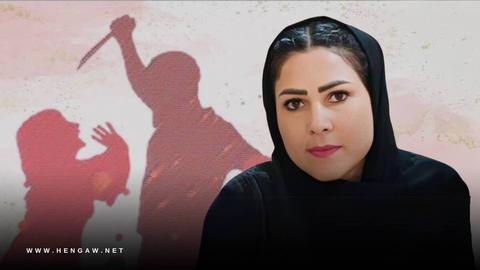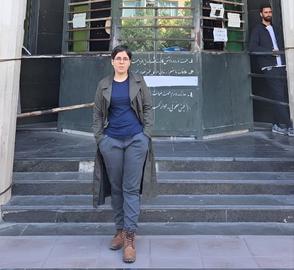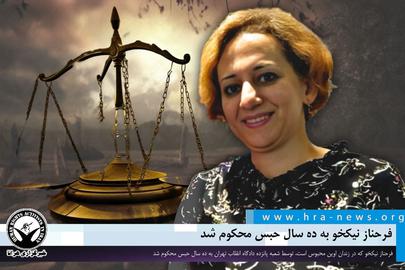The release of new guidelines for the Iranian universities of medical sciences, which include rules on how students should dress, has sparked a flurry of reactions among local media outlets and social media users.
The Ministry of Health has recently unveiled a "code of conduct” which students and assistants of medical sciences faculties and universities are required to adhere to in both the academic and medical environments.
Among its provisions, the text mandates that universities secure written commitments from students confirming their compliance with the new regulations and keep a disciplinary record of "attire and conduct" to gauge adherence.
"Academic staff members are tasked with assessing students and medical assistants based on their adherence to hijab standards and clothing,” according to an article in Etemad newspaper. “Furthermore, this policy introduces a separate evaluation called the 'Professional Attire and Behavior Report,' which specifically evaluates a student or medical assistant's hijab and conduct."
Social media users brought attention to restrictions such as the prohibition of chewing gum in medical facilities and curly hair for men, as well as a ban on the use of cologne and cosmetics.
The policy also bars women from using nail extensions and eyelash enhancements for women.
Pursuing Social Uniformity
In an interview with IranWire, sociologist Mehrdad Darvishpour pointed out that one of the tactics employed by totalitarian systems to homogenize society and mold it to their preferences involves extensive intrusion into the private lives of individuals in order to control their personal choices and values.
According to Darvishpour, the government has not been successful in reshaping society according to its vision, despite more than four decades of efforts to do so.
"To compensate, it is now attempting to exert control over various aspects of life. This control extends beyond the mere issuance of guidelines in universities, including students' compliance, the expulsion and removal of professors and the arrest of students," he said.
"It also extends to police intervention and invasion into personal privacy, infringing on the smallest expressions of human dignity," he added.
In the view of this sociologist, the government seeks to introduce in universities a deeply religious atmosphere that is heavily influenced by the system's totalitarian values.
Resisting the "Women, Life, Freedom" Lifestyle
Darvishpour highlighted another factor for the government's pressure on universities, a factor rooted in the government's decades-long struggle to purge the university of the concept of freedom.
"Today, it's evident that students not only continue to be staunch defenders of the university's freedom but also serve as vanguards in challenging the Islamic government's values," he said.
Darvishpour said that the government seeks to foster a new generation of young individuals who are unwaveringly obedient to the system by imposing control over matters such as the hijab.
Last but not least, the government's actions can be seen as an attempt to control and suppress the lifestyle advocated by the "Free Life Woman" protest movement, he said.
Targeting Students and the Medical Community
Sahar Motalebi, a doctor and researcher, said that medical students and healthcare professionals are being targeted because of their active roles during last year’s anti-government protests.
"They responded to repressive measures with peaceful, civilian participation and they decried the use of ambulances in oppressive actions. They protested Mahsa [Amini's] death and the chemical attacks on girls' schools," Motalebi said.
Members of the medical and nursing communities also lent crucial assistance to those injured in the protests.
Because of their role in the protests, a significant number of university professors have been detained or dismissed from their positions, Motalebi emphasized.
Fueling Emigration
According to Motalebi, the government primarily seeks to push dissenting groups to emigrate, which in the medical sector led to “a rise in diabetes cases, an uptick in cardiovascular diseases, and a surge in suicides, all of which collectively imperil public health."
Motalebi also noted that the government's actions, which involve favoring individuals with connections and lowering the quality of medical education, have contributed to a decline in the quality of health programs.
The issuance of a code of conduct for medical students comes at a time when university officials' actions have already led to the humiliation and suppression of students.
A female medical student described to IranWire how students, particularly women, are often met with derogatory comments when they enter university premises.
Security guards make remarks on their attire, question the appropriateness of their clothing, makeup and headscarves. Female students are subjected to degrading questions such as "Do you want men to admire your curves?"
The student explained that the constant barrage of judgments and humiliations erodes medical students' motivation and enthusiasm for learning.
However, this is just part of the story. For instance, if students want to eat with their classmates outside the cafeteria, security personnel insist that they have no right to have lunch with members of the opposite sex.
Security officers also interfere when students engage in recreational activities, like playing in the snow.
Students who resist pressures face the risk of expulsion, suspension or legal action.
Meanwhile, professors are informed that failing to adhere to the guidelines may impede their academic advancement and the extension of their contracts.
Consequently, many highly qualified individuals either avoid becoming faculty members or quit their job, leading to irreparable losses for the students' academic development.



























comments